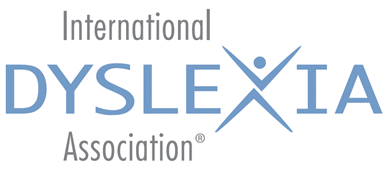Self Esteem Therapy in Ypsilanti MI
If you’re in Ypsilanti and struggling with persistent self-criticism or low self-worth, evidence-based therapy can help you rebuild healthier self-esteem, reduce chronic shame, and restore day-to-day functioning.
Therapists use CBT, ACT, and compassion-focused strategies, plus trauma-informed care when needed. Treatment begins with structured assessment, measurable goals, homework, and progress monitoring. You’ll practice cognitive restructuring, behavioral experiments, and values-based action.
Understanding Self-Esteem and Its Impact in Ypsilanti
Although self-esteem often feels personal and subjective, it has measurable effects on mental health and daily functioning: when your self-worth is low, research shows you’re more likely to experience depression, anxiety, impaired stress regulation, and avoidance of challenges.
In contrast, healthy self-esteem supports resilience, adaptive coping, and better interpersonal functioning. You benefit from understanding mechanisms—early attachment, feedback loops, learned attributions—so you can target self worth development systematically.
Evidence-based interventions focus on cognitive restructuring, behavioral activation, and skills training to reduce negative self-schemas and increase mastery. You’ll apply measurable goals, track progress, and practice behavioral experiments that promote confidence building while maintaining self-appraisal.
Because you likely serve others, strengthening self-esteem enhances empathy, boundary setting, and caregiving capacity. Clinically, improvements reduce physiological stress responses and improve decision-making under pressure.
You’ll find brief interventions produce durable gains when paired with consistent practice and social support, offering pathways from assessment to measurable change.

Start Your Journey Here
Offering In-Person and Teletherapy Options For You or a Loved One
Signs You Might Benefit From Therapy in Ypsilant
Understanding how self-esteem affects mood and functioning helps you recognize when professional help can speed recovery. You might benefit from therapy if persistent self-criticism reduces your capacity to support others, if avoidance or perfectionism limits your vocational or caregiving roles, or if mood fluctuations stem from chronic low self-regard.
When self-criticism, avoidance, or perfectionism impair caregiving or work, therapy can restore functioning and mood
Notice when feedback you’d normally integrate triggers disproportionate shame, or when decision-making stalls because you doubt your value. Functional markers—declines in work, strained relationships, withdrawal from community service—signal a need for intervention.
You don’t have to wait for crisis; early attention promotes confidence building and self-worth enhancement, improving resilience and role effectiveness. In sessions, clinicians assess symptom patterns, functional impairment, and coping strategies, then collaborate on measurable goals that restore agency.
If these signs resonate, seeking evaluation can protect your ability to serve others while restoring healthier self-perception and sustainable functioning and preserve long-term personal and professional wellbeing.
Evidence-Based Approaches Used in Ypsilanti
When you seek self-esteem treatment in Ypsilanti, clinicians use evidence-based methods—like cognitive-behavioral therapy (CBT), acceptance and commitment therapy (ACT), compassion-focused interventions, and trauma-informed approaches—to target the negative beliefs, avoidance patterns, and shame that undermine confidence.
You’ll work with practitioners who prioritize measurable change: CBT provides behavioral experiments and Cognitive restructuring to identify and modify distorted self-appraisals, while ACT builds values-driven action and psychological flexibility so you can continue serving others effectively.
Compassion-focused work and explicit Self compassion techniques reduce internal criticism and cultivate a steady inner mentor that supports altruistic goals.
Trauma-informed care ensures safety, respects boundaries, and integrates pacing to prevent re-traumatization.
Clinicians use standardized assessments and progress monitoring to guide treatment choices, emphasizing practical skills, relapse prevention, and transferable strategies so you leave equipped to maintain healthier self-view and sustained engagement in helping roles.
You’ll receive collaborative education and resources to support ongoing compassionate practice daily.
What to Expect During Ypsilant Self-Esteem Therapy Sessions
In therapy you’ll begin with a structured assessment and collaborative goal-setting that maps your current self-beliefs, functioning, and treatment priorities to measurable outcomes. Sessions typically combine brief check-ins, focused interventions, and homework tailored to your role as a helper, so improvements transfer to caregiving and leadership contexts.
Therapy begins with structured assessment and collaborative goals, combining focused interventions and homework tailored to helper roles.
We’ll use standardized self worth assessment tools and validated measures to track change, alongside cognitive-behavioral exercises that target negative self-talk. You’ll practice confidence building skills—behavioral experiments, assertive communication, and values-driven activities—in session and between appointments.
The therapist gives clear, evidence-based feedback, models adaptive responses, and helps you rehearse new behaviors in simulated interactions. Progress reviews occur regularly, adjusting intensity and techniques based on objective scores and your subjective experience.
If setbacks occur, we treat them as data for problem-solving rather than failure. You’ll leave each session with concrete tasks, measurable targets, and empathic plan to strengthen sustained self-esteem in service-oriented roles.
How to Choose a Self-Esteem Therapist in Ypsilanti
Because effective self-esteem work depends on both clinical skill and relational fit, look for a licensed clinician in Ypsilanti who combines evidence-based training (CBT, ACT, compassion-focused approaches) with experience treating low self-worth and caregiver burnout.
You’ll want someone who conducts a structured self-worth assessment early, uses validated measures, and explains treatment targets clearly.
Ask about their approach to confidence building, session frequency, and homework expectations so you can plan around caregiving duties.
Verify licensure, training, and outcome data when available; clinicians who track progress with measures increase accountability.
Prioritize therapists who demonstrate empathy, respect your service-oriented values, and help translate gains into supportive relationships and boundary-setting.
Consider logistics—telehealth options, sliding scale fees, insurance, and evening availability—to maintain consistent care.
Trust your responses during an initial consult: you should feel heard, respected, and reasonably hopeful about achievable, measurable goals.
Make decisions that protect your capacity to continue serving others.
Conclusion
You’re not alone in struggling with low self‑esteem, and therapy in Ypsilanti can give you practical, evidence‑based tools to change self‑critical patterns, build resilience, and improve functioning.
In sessions you’ll learn measurable skills—cognitive restructuring, behavioral experiments, and self‑compassion practices—tailored to your needs. Your clinician will monitor progress and adjust interventions.
If you’re ready to try structured, empirically supported care, reach out for an assessment to start compassionate change and reclaim a healthier sense of self.
Experienced and Highly Qualified Psychotherapy and Psychological Testing Services







